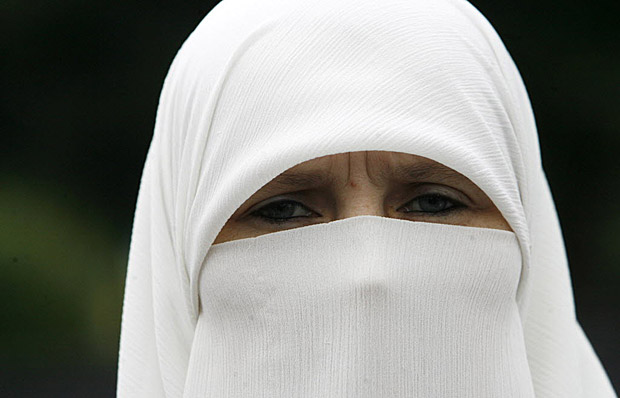TORONTO – On Monday, France became the first country to enact a ban on full-face veils in public spaces.
France’s President Nicolas Sarkozy initiated the ban two years ago, equating the veils as prisons that contradict the country’s values of equality and dignity.
The ban received wide public support when it was passed in parliament last year.
However, critics of the ban call it an affront to freedom of expression and religion.
In Belgium, parliament passed a measure banning veils in 2010 but the legislation has deteriorated since the country has struggled to form a new government for the past several months.
A coalition government installed in 2010 in the Netherlands said it is aiming to ban the burqa, but has yet to present any concrete plans or draft legislation.
Could a full-face veil ban happen in Canada?
Last year the province of Quebec tabled Bill 94, which would ban individuals from receiving or delivering public services if wearing a full-face veil.
The controversial legislation is currently sitting before a committee in parliament, but a poll from late last year showed that the majority of Quebecers would support Bill 94.
In a survey conducted by Ispos Reid for Global News, 85 per cent of Quebec respondents said they support Bill 94, which calls for a ban on full face veils in government service buildings, hospitals, daycare centres and other public spaces in Quebec. Sixty-seven per cent of the respondents said they strongly support the bill and 18 per cent said they support it somewhat.
This negative attitude to face veils can be attributed to Quebecers’ cultural values and recent history, says Jack Jedwab, executive director of the Association for Canadian Studies.
Born of the Quiet Revolution in the 1960s, modern Quebec nationalism regards secularism and equality as sacred. In Quebec, the veil is seen as a matter of religious authority undermining gender equality, says Jedwab.
He says Quebecers view the veil as a community issue whereas other Canadians view it as a matter of individual rights.
Mark Wilkins from Ipsos-Reid says that 85 per cent of Quebecers supporting the ban is entirely consistent with Quebecois culture.
“Whether speaking about the situation in their own backyard, or at the larger national level, Quebecers by and large are highly disinclined toward the incursion of faith upon the secular society,” says Wilkins.
Not all Canadians see the veil the same way Quebecers do.
“As an educator teaching inclusion, I find it contradictory to Canadian values that individuals are being told to what degree they are able to practice their religion,” says Michael Brodie, a teacher in the Toronto area.
“How would Christians react if the crucifix became an illegal symbol? We can’t choose which religions, practices and symbols are acceptable, so long as they don’t impede on the rights of others,” says Brodie.
Brodie’s sentiment is shared by others who believe Quebecers must proceed with caution when passing legislation that targets religious symbols and groups.
Jedwab places importance on the word of the proposed bill. He says it shouldn’t make any reference to religion when talking about covered faces in public spaces. “Doing otherwise legislatively risks fueling hostility towards Muslims,” says Jedwab.
The full face veil ban is certain to be a lengthy debate in Quebec and across the country.
“We’re a diverse society, and have been for hundreds of years,” says Jedwab, “but we’re not used to this type of religious diversity. We’re going to have these debates for a while.”
With files from The Associated Press









Comments